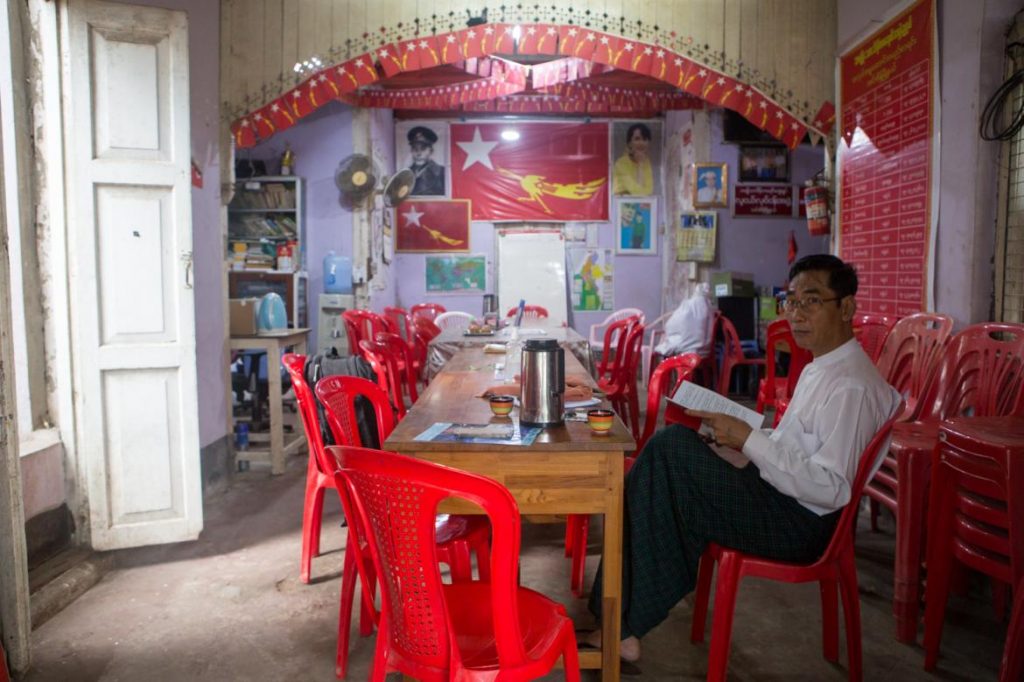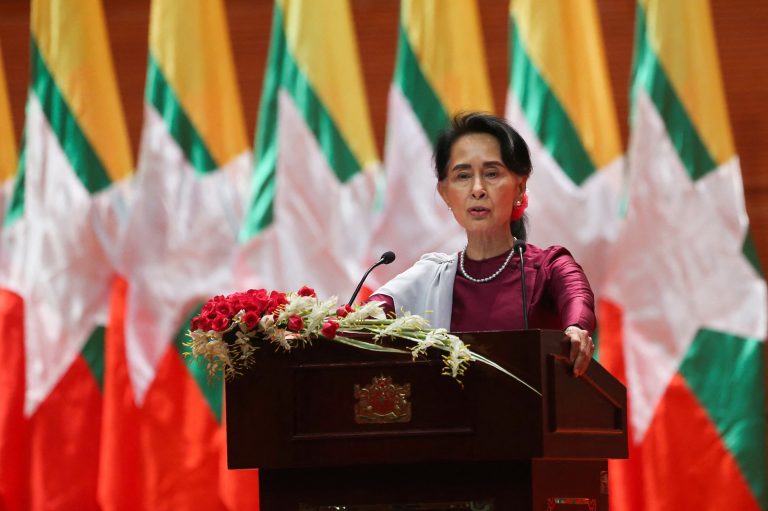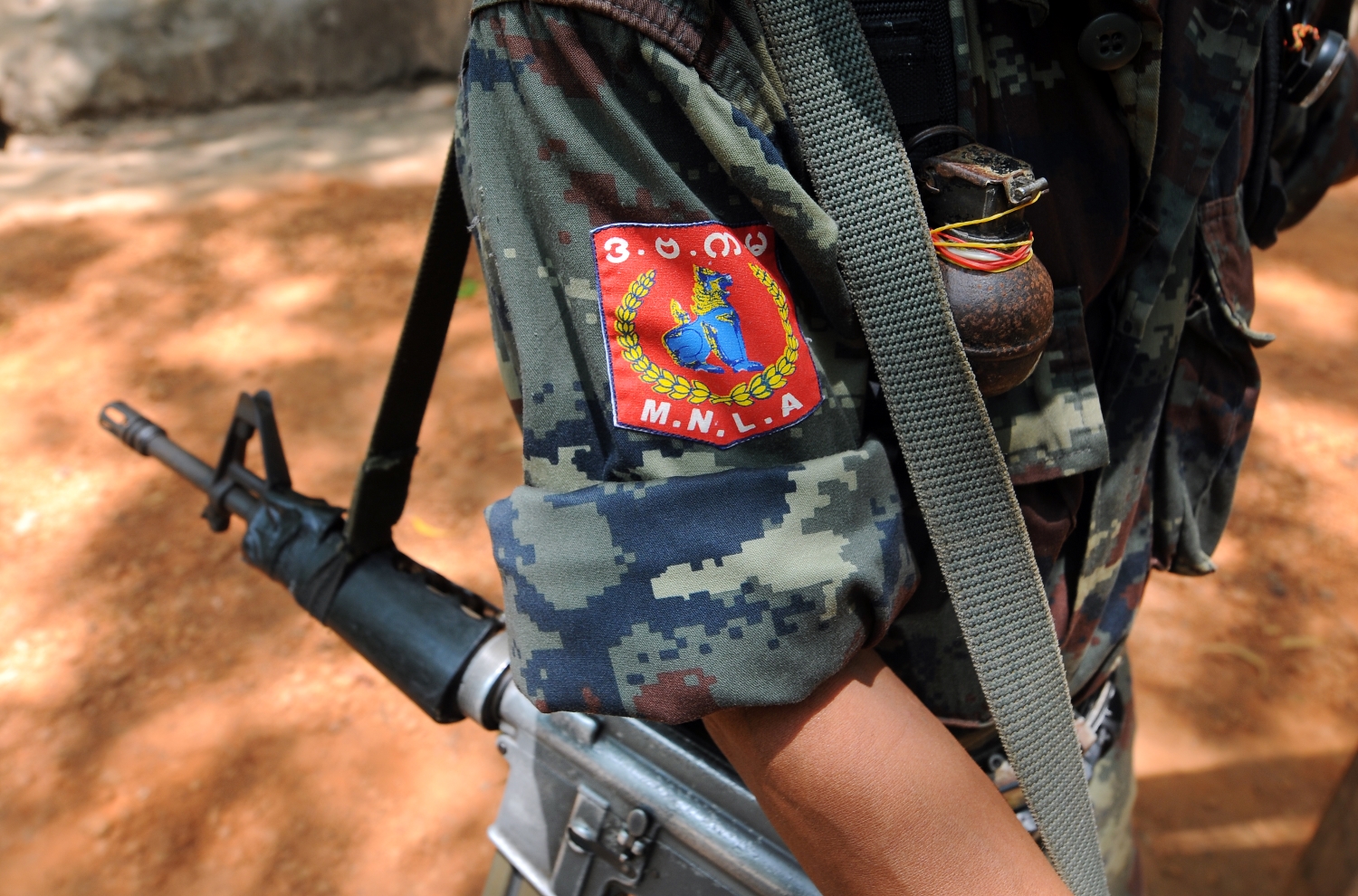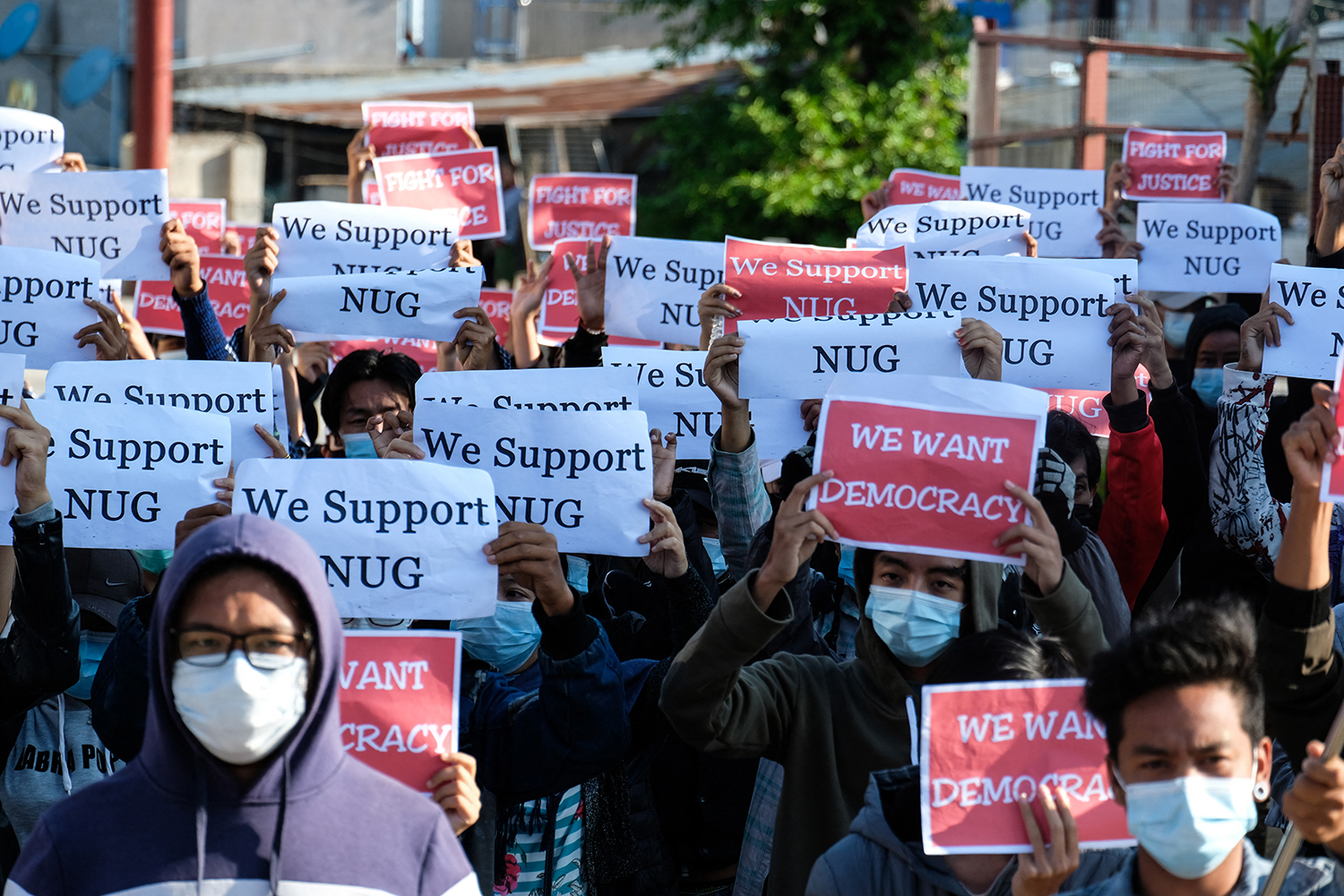The National League for Democracy is keen to avoid a repeat of the in-fighting that dogged candidate selection in 2015, but its recruitment of “elders” for the task has made some cry foul.
By YE MON and HEIN THAR | FRONTIER
From casual observers to political analysts, almost everyone expects that the National League for Democracy will retain its hold on power in the coming election.
Scheduled for November – coronavirus permitting – electoral competition will be focused in ethnic states where a consolidation of ethnic parties is expected to deprive the NLD of some seats it won five years ago. But Myanmar’s indirectly elected presidency – for which the winning party requires only a plurality, and not an outright majority, of parliamentary seats – means a greater electoral haul for ethnic parties would still be unlikely to prevent another NLD president.
In the Bamar-majority constituencies, support for the NLD remains strong, buoyed by the appeal of Daw Aung San Suu Kyi. The state counsellor’s role as the face of the government’s COVID-19 response, and as the country’s agent at the genocide trial at the International Court of Justice in The Hague, has proved wildly popular. In many of these constituencies, the winning candidate is marked out well ahead of election day; the big question is not which party will win, but who the NLD will pick as its candidate.
Because receiving an NLD ticket is considered the fast lane to a parliamentary seat, the candidate selection process is hugely competitive and fraught. In advance of the 2015 general election, the NLD’s ostensibly bottom-up candidate selection process was marred by allegations of favouritism and overreach by senior party members. Many township party chapters complained that long-serving local members had been passed over in favour of candidates imposed by higher levels of the party.
Eager to avoid the bitterness and infighting that distracted from election campaigning in 2015, NLD senior officials told Frontier the party had made the candidate selection process less open to charges of nepotism through the involvement of myo mi myo hpa, or “town elders”, in each township. This approach had proven successful in the party’s 1990 election campaign, which, though victorious, the military junta refused to honour.
“There was no unity in 2015 when the candidates were selected,” said U Aung Shin, a member of the NLD’s information committee, on June 18. “That’s why the party has reused the old tactic.”
But the policy has proven controversial. Most people associate the term “myo mi myo hpa” with the respected older residents of a township who, since the era of military rule, have been appointed by the General Administration Department to offer advice on local governance and act as witnesses for official functions.
Other parties allege that the so-called elders appointed for election candidate selection were largely NLD partisans, and that casting them as respected, independent members of the community was misleading to voters and violated rules of fair competition.
Moreover, even at the township level, the decision-making power of these elders was outweighed by NLD township committee members, and township-level decisions can later be overruled by the party’s central executive committee. This makes the elders’ role appear tokenistic and unlikely to prevent undue influence from senior leaders.
Elders outnumbered
The NLD’s Hlegu Township chapter in Yangon Region chose U Maung Maung, a businessman and an honorary patron of the party, as one of the five local elders that have been appointed in each township. He described the now-completed candidate selection process in Hlegu to Frontier.
Firstly, anyone who wished to vie as a candidate for that township – for seats in the upper or lower houses of the Union parliament, or one of the two seats in the regional assembly that are allotted to each township – had to complete an application form at the NLD’s township office. Maung Maung said that, on June 15, he and the four other appointed elders met with the 20-member NLD township executive committee, as well as two members each from the party’s women’s and youth wings in the township, to vet 18 aspirants who had applied. He said that 29 assembled people reached a consensus on a nominee and runner-up for each of the four parliamentary seats in contention.
This process was repeated in townships across the country during June. When elders, township committee members and women and youth representatives failed to reach a consensus on nominees, there was a vote with secret ballots. Because all votes were weighted equally, the township committee could easily outvote the elders’ preferences.
What is more, according to Aung Shin, the names of all applicants, and not just the preferred nominees and runners-up, were passed from the township to higher levels of the party. The NLD’s central executive committee is free to disregard the township preferences and choose any of the other applicants for the final list of candidate nominees, which the party indicated would be announced at the end of June.
It is therefore unclear whether the appointment of elders could help to avoid the allegations of overreach by senior party members that rocked the party in 2015. That year, the selection process closely resembled this year’s but without the involvement of elders; township committees vetted aspiring candidates and submitted their preferences to the party leadership.
In 2015, controversy swirled around U Win Htein, an honorary patron of the NLD who was then in the central executive committee and one of the most influential people in the party. It was alleged that he was instrumental in the selection of candidates for state and region parliaments who, after the election, were appointed by the president as chief ministers of their state and region. This is significant because chief ministers can only be chosen from among elected state and regional MPs, in contrast to Union ministers who do not need to compete in elections to later be appointed to cabinet.
Aung Shin confirmed that Win Htein, who is no longer considered influential within the party, had handpicked candidates in 2015, including some who had gone on to be appointed as chief ministers. Win Htein himself admitted in an interview with BBC Burmese on June 16 that he had chosen some candidates and named Daw Lei Lei Maw, who led the Tanintharyi Region government before being enveloped in a bribery scandal in early 2019.
The regional high court sentenced Lei Lei Maw to 30 years in prison in May after she was charged with corruption, along with three local company officials. It is the most high-profile anti-corruption conviction under the NLD government, which pledged to prioritise tackling graft. During the recent BBC interview, Win Htein described her sentence as “too harsh”.
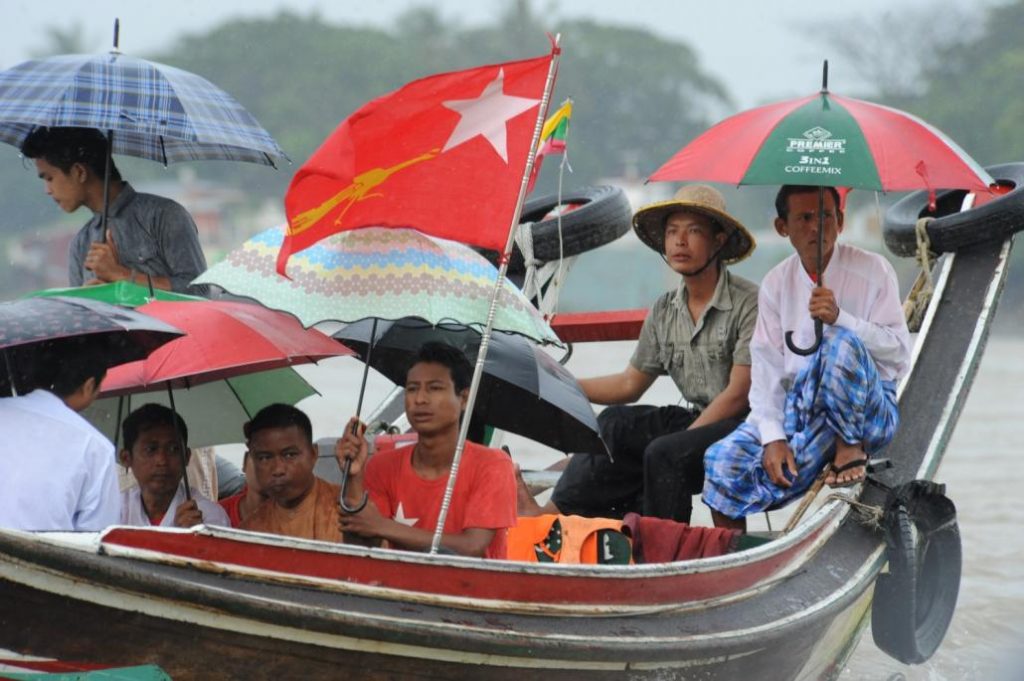
NLD volunteers campaign in Ayeyarwady Region on September 21, 2015, ahead of the general election that year. (Steve Tickner | Frontier)
‘Just for show’
In 2015, the NLD’s central executive committee also rejected as candidates some well-known individuals who had the support of township party chapters. The two most high-profile examples were U Ko Ko Gyi, a student leader in the 1988 democratic uprising who has since formed his own party, the People’s Party, and Daw Nyo Nyo Thin, who was a stern critic of the previous Yangon Region government’s lack of transparency while a lawmaker in the regional assembly from 2011 to 2016. The NLD leadership did not explain why it had omitted them from the final candidate list.
Nyo Nyo Thin ran unsuccessfully as an independent in 2015 but lost to the NLD candidate. She now runs civil society group Yangon Watch, which focuses on accountable city governance. She forecasts a repeat this year of 2015, when the party leadership rejected one third of aspiring NLD candidates put forward by township offices – a figure Aung Shin confirmed to Frontier.
Nyo Nyo Thin told Frontier that adding elders to the selection process was good in principle, but under the current arrangement they lacked real decision-making power. “They should have full mandates,” she said. “The township [party] committees should not have the right to vote for candidates. Now, the elders are just for show in the nomination of candidates.”
Opposition parties, meanwhile, have been less concerned with the NLD’s internal democracy and more agitated about the potential for the appointment of so-called elders to mislead voters into thinking that the NLD enjoyed the unanimous support of the most respected senior members of each community. The elders do not have to be NLD members, but in practice most of them, if not all, are from the party.
U Nandar Hla Myint, spokesperson for the Union Solidarity and Development Party, the largest opposition party, told Frontier that they are concerned that voters will confuse the NLD-appointed “elders” with the pre-existing elders appointed by the GAD to support local administration, giving the NLD an unfair advantage.
“We want the election commission to take action against the NLD over the township elders,” he said.
Thirty political parties, including the USDP, sent a complaint letter to the Union Election Commission on June 16 demanding a meeting to discuss the NLD’s township elders among other concerns about unfair competition, such as the use of images of national leaders on campaign materials. The latter concern is likely driven by the prominent use of Aung San Suu Kyi’s image in the NLD campaign in 2015.
At press time, the UEC had yet to agree to a meeting with the parties.
Fresh blood
While the NLD government appears to have remained popular – at least in Bamar-majority areas – there has been widespread dissatisfaction over the performance of many individual MPs, ministers and state and regional chief ministers from the party, and a perception that unqualified people were chosen for these roles.
Aung Shin admitted to Frontier that, in some cases, the “wrong people” had been chosen as election candidates and ministers. He said the party-appointed elders would help prevent this from happening again – though he did not explain how, given that their preferences can easily be overruled at the township and higher levels.
Whatever the significance of the elders, the criticism of many incumbents does appear to have led to a preference for fresh blood in the candidate selection process so far. Aung Shin and U Aung Kyi Nyunt, an Amyotha Hluttaw MP and member of the NLD’s central executive committee, told Frontier that about one third of the nominees would be first-time candidates.
Yangon-based political analyst U Yan Myo Thein said new people are exactly what the NLD needs, though he emphasised that they should be carefully vetted for ability and political knowledge.
“Now is the time to find the right people before the election of the parliaments and nomination of cabinets,” he said. “The NLD should learn the lessons from what they got wrong during their current term.”
Aung Kyi Nyunt agreed with Yan Myo Thein’s assessment, saying the party must put “the right people in the right places”. However, he did not explain what criteria would determine who the “right people” were. Although he said the party would choose more women, youth and members of ethnic minorities as candidates, he mentioned no quotas or formal targets for their inclusion.
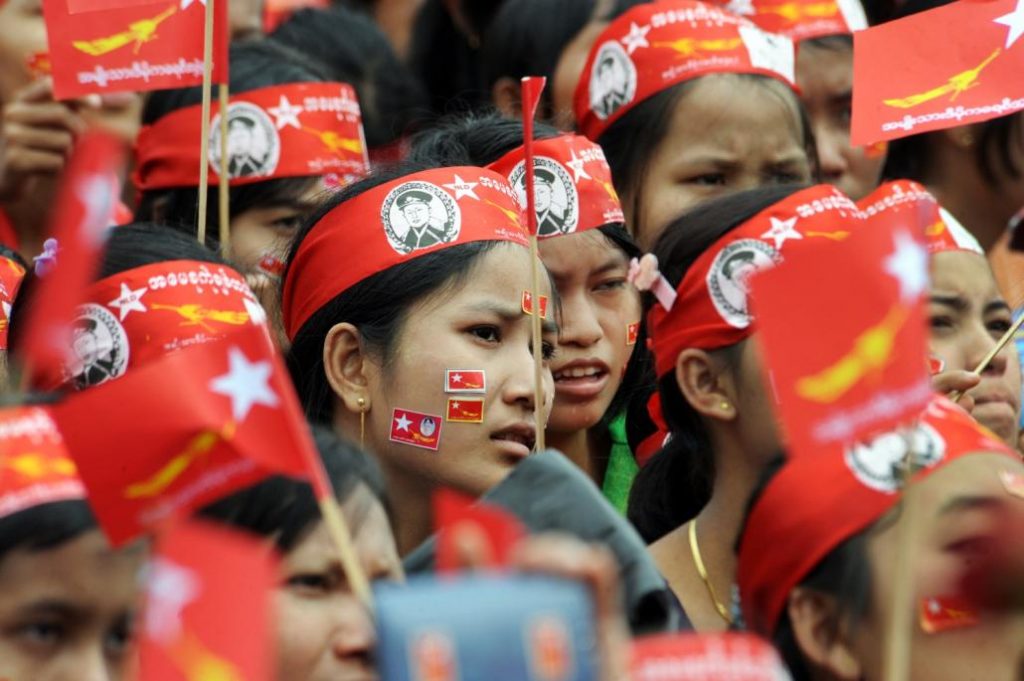
An NLD election campaign rally in Hmawbi Township, Yangon Region, on October 10, 2015. (Steve Tickner | Frontier)
Unhappy incumbents
At press time, the NLD had yet to announce a final list of candidate nominees, who later need to be vetted by the UEC against strict eligibility criteria before campaigning begins in September. These criteria are more restrictive than for voters and include a minimum age that differs between parliamentary houses (25 in the Pyithu Hluttaw and 30 in the Amyotha Hluttaw), 10 consecutive years of residency in Myanmar and the need not only to be a full citizen, but to have parents who were citizens at the time of your birth.
But even in the absence of a final list, some of the township-level decisions have made headlines.
U Ye Min Oo, the deputy mayor of Nay Pyi Taw who was recently appointed Yangon Region minister for planning and finance, has been chosen by the Dagon Township committee members and elders as the preferred candidate for one of the Yangon township’s two regional hluttaw seats.
A former managing director of U Tay Za’s Asia Green Development Bank, Ye Min Oo has been tipped as the next Yangon chief minister. The incumbent, U Phyo Min Thein, told RFA Burmese on June 15 that he will not run in the coming election despite being invited to do so by the township committee members and elders in his current constituency in Hlegu.
Phyo Min Thein cited health reasons for exiting politics; he underwent heart surgery in 2017. However, his tenure has been dogged by controversy, including reports of murky public-private business ventures and imprudent government spending that he has sometimes responded to with criminal defamation complaints against journalists. In June he survived an impeachment vote in the regional hluttaw after he attended a Buddhist ceremony that his critics say violated COVID-19 restrictions on public gatherings.
Aung Kyi Nyunt, who spearheaded a constitutional reform bid in the national parliament that concluded unsuccessfully this year, and who also tabled the bill that created Aung San Suu Kyi’s state counsellor role in 2016, was chosen only as a reserve candidate for his upper house constituency in Magway Region. However, he could still be picked as the eventual candidate by his fellow central executive committee members.
Meanwhile, Aung San Suu Kyi’s name is conspicuously absent from the lists of preferred candidates decided by township party chapters and elders. This may be because vying in the election is unnecessary to her maintaining a leadership role after the vote. The posts she occupies, that of state counsellor, foreign minister and minister for the President’s Office, do not require her to be an elected MP. In fact, as with other Union-level executive positions, they required her to give up her Pyithu Hlutaw seat in Yangon’s Kawhmu Township that she won in the 2015 election.
Daw Tin Ei, speaker of the Mon State hluttaw and prominent NLD MPs U Nay Phone Latt, Daw Zin Mar Aung, Daw Kyi Pyar and U Aung Hlaing Win have announced that they are not going to run again.
This suggests the party’s welcoming of fresh faces while choosing candidates may not be entirely out of choice.
Aung Hlaing Win, who is the Pyithu Hluttaw representative for Yangon’s Mingaladon Township, said he was quitting his parliamentary career out of frustration at the limited freedom the NLD grants its MPs. He told Frontier this ranged from bans on publicly sharing opinions on party matters, including on social media, to restrictions on pursuing parliamentary initiatives.
“Lawmakers cannot submit proposals without instructions from the party,” he said. “We cannot do what we want to do as MPs.”


